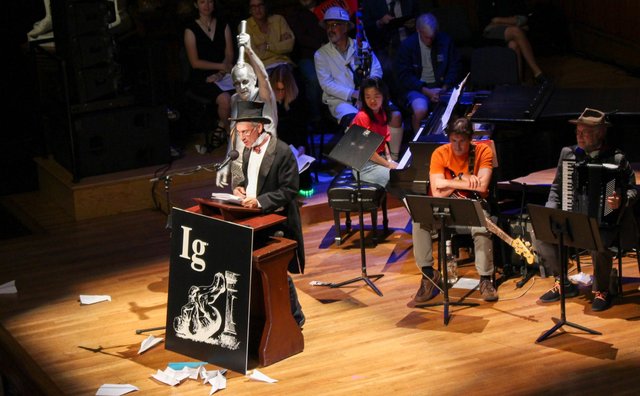Research from the more unusual realms of science is recognised every year at this alternative awards ceremony.
Groundbreaking studies into how well beards soften punches to the face, the benefits of transporting rhinoceroses upside down, and orgasms as a nasal decongestant were honoured on Thursday night with one of the most coveted awards in science: the Ig Nobel prize.
Not to be confused with the more prestigious – and lucrative – Nobel awards, to be announced from Stockholm and Oslo next month, the Ig Nobels celebrate the quirkier realms of science, rewarding research that first makes people laugh and then makes them think.
In a ceremony held online rather than in the usual theatre at Harvard University, real Nobel laureates handed out 10 Ig Nobels to scientists, economists, doctors and mathematicians from 24 countries on six continents.
“When I heard I’d won I was a little nervous,” said David Carrier, professor of biology at the University of Utah and recipient of the Ig Nobel peace prize. “I was thinking, do I want this award?” After a little research, he concluded he did.
Prof Carrier and his colleagues set out to test the controversial hypothesis that men evolved beards to protect their faces in fist fights. While Charles Darwin – a man who fully embraced facial hair – suspected beards evolved “as an ornament to charm or excite the opposite sex”, Carrier found evidence for their protective qualities. After dropping weights on to a bone-like material covered in sheep fleece, he concluded that hairy skin absorbs far more energy than smooth skin.
“It’s not that beards provide a lot of protection. A really strong punch is always going to be dangerous,” he said. “What we can say is that they provide some protection to the bones and skin. He now wonders whether beards might also act as obscurants, making the jaw harder to target in a fist fight.
To keep the ceremony’s audience entertained, scientists and singers sought to instil hope for the future by performing a premiere of a mini opera that connected angry adults with miniature suspension bridges.
The Ig Nobel for economics went to Pavlo Blavatskyy, a professor at Montpellier Business School, who used a computer vision algorithm and photos of politicians to find evidence that obesity is “highly correlated” with national corruption. The physics prize honoured research that explained why pedestrians are not constantly colliding, while the kinetics prize rewarded work that showed why they sometimes do.
Among the other freshly minted Ig Nobel laureates were Cmdr John A. Mulrennan (retired) of the US Navy who won the entomology prize for eradicating cockroaches on submarines with a highly-potent organophosphate insecticide. The transportation prize went to a group that found airlifting tranquilised rhinoceroses upside down is probably better for them than carrying them on their sides in slings. The ecology prize honoured research into the array of bacteria living on chewing gum stuck to pavements, while the biology prize went to Dr Susanne Shötz at Lund University for her extensive work on the purrs, chirps, trills, hisses, howls, growls and meows that constitute feline communication.
Cem Bulut, a professor at the SLK Clinics in Heilbronn in Germany, and colleagues, won the medicine prize for research that suggests sex with orgasm is an effective nasal decongestant. Having developed suspicions based on “self-observation”, Bulut recruited a group of co-workers to investigate.
The obliging couples were trained with a device to measure their nasal airflow before sex, immediately after sexual climax and at regular time points thereafter. According to the team’s report, sex was as effective at clearing blocked noses, for an hour at least, as commercial decongestants, though Bulut concedes he did not get firm data from everyone. “I think some people couldn’t focus on the device,” he said. How sex might unblock the nose is not entirely clear, but Bulut sees a number of factors in play. “I think it’s a mixture of excitement, physical exercise, and hormonal changes that come with orgasm,” he said.
Prof Jonathan Williams, an atmospheric chemist at the Max Planck Institute for Chemistry, and colleagues won the Ig Nobel for chemistry for studying how odours released by cinema audiences change with screen violence, comedy, suspense and more. Among other results, they found isoprene levels varied enormously during scary movies, allowing them to distinguish between different movie age ratings.
“Now we know that human beings broadcast signals depending on various emotional states, the golden question is do other people perceive those signals,” Williams said. “If we were in a dark room and I was scared, would you pick up on it?”
The event is produced by the magazine Annals of Improbable Research and concluded by Marc Abrahams, the master of ceremonies, with the words: “If you didn’t win an Ig Nobel tonight – and especially if you did – better luck next year.”
